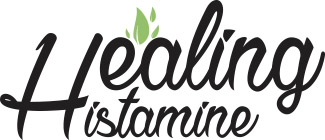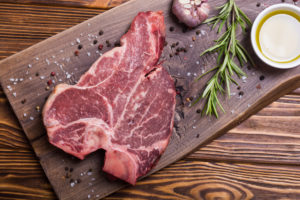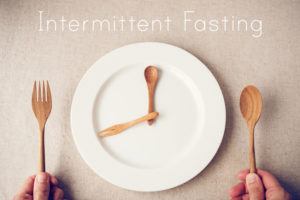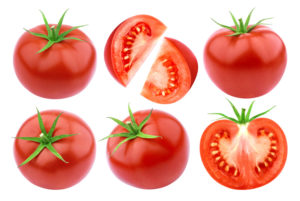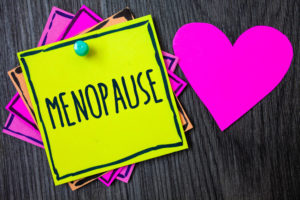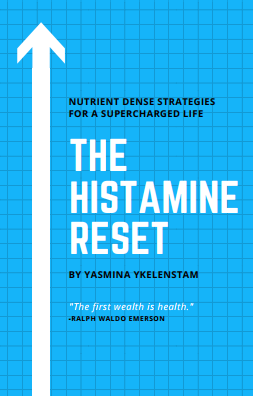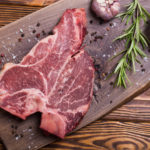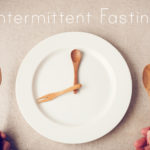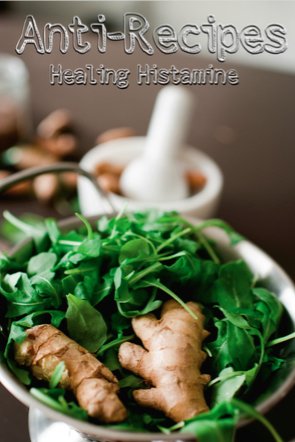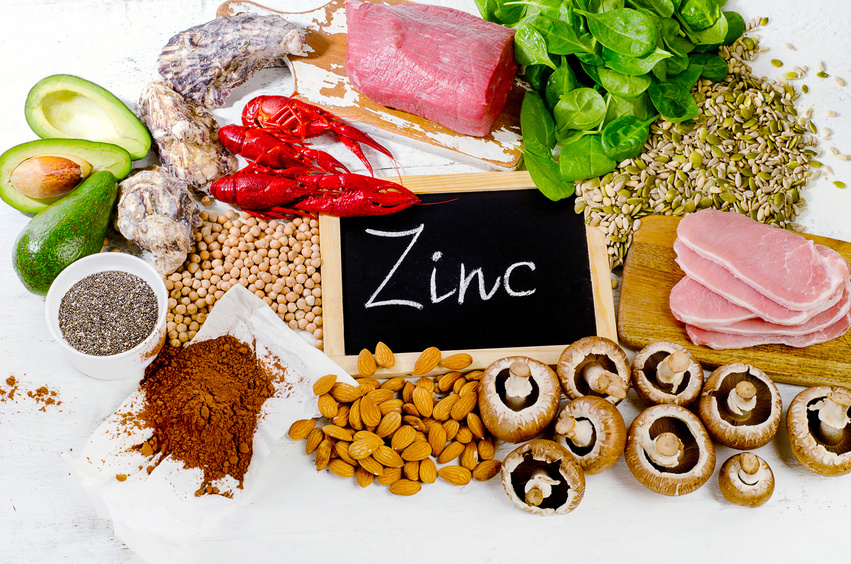
Zinc depletion is linked to histamine related itching, mast cells releasing more histamine into the bloodstream, and a whole host of other conditions. You’ll notice from the featured photo that many high zinc foods are high histamine. Below you’ll find a list of low/medium histamine foods. All references always at the bottom of the post.
I’ve spent the last few years writing about the importance of supporting the body overall, rather than simply eliminating sources of histamine in foods. The latter results in orthorexia, which is a type of eating disorder where foods are demonised, and also in malnutrition. I suffered both myself and personally have encountered hundreds of readers with both issues.
When I read studies like the one that inspired this post, on how researchers solved mystery itching that was plaguing dialysis patients, it spurs a renewed drive to really make sure we’re all on track. The short and long of it is that they found that zinc depleted patients had histamine release during treatment. Supplementing zinc resulted in the resolution of the itching during treatment.
Other researchers found that zinc was able to mediate histamine release caused by a chemical trigger, and prevent asthmatic symptoms.
Please remember to consult with someone before starting any kind of nutritional supplement. Copper deficiency is not uncommon when increasing zinc alone, and should be taken into account.
A key component to getting the body back on track is to optimise our intake of nutrients whose lack drives up histamine levels and inflammation as a whole. I took too many years to do this myself and ended up in a fine mess of being down to just a handful of foods (read my post “Once up on a time we all reacted to foods”).
Figuring out nutritional priorities overall
You could either shell out for testing yourself by finding a functional medicine doctor to order the tests, or just share with your GP that you’ve been eating a restricted diet and hopefully get them on a national health service or private insurance. When strapped for cash, I used a nutrient and calorie tracking app (Fitday) to track my intake over a month. There’s no use stressing daily intake, that’s just way too intense, just checking overall monthly intake is what I did.
 Zinc deficiency symptoms
Zinc deficiency symptoms
Brain fog
Immune system dysfunction
Allergies/food intolerance
Hair loss
Intestinal permeability/leaky gut
Rashes/acne
Factors affecting zinc absorption
Decrease bioavailability
- Phytate in cereals, corn, rice, lentils (germination/sprouting reduces this)
- Iron supplements (should not be taken at the same time as zinc)
- Casein in dairy
Increase bioavailability
- Methionine
- Animal based protein
Low/Medium histamine Zinc foods
- Grass fed beef
- Beans
- Chicken (low histamine but inflammatory – read more here low histamine foods I don’t eat)
- Chickpeas
- Oatmeal
- Almonds
- Peas
- White fish
- As you can see, the list isn’t very long, which is why a supplement might need to be added to a nutrient dense diet.
You’ll find recipes full of foods with antihistamine and anti-inflammatory properties my books Anti-Recipes and The Anti-Cookbook
CLICK HERE FOR A FOUR WEEK HISTAMINE RESET WITH MEAL PLANNERS, STRESS RELIEF STRATEGIES & MORE
—–REFERENCES—–
Sanada, S, et al. “[Beneficial effect of zinc supplementation on pruritus in hemodialysis patients with special reference to changes in serum histamine levels].” Hinyokika kiyo. Acta urologica Japonica., U.S. National Library of Medicine, Dec. 1987, www.ncbi.nlm.nih.gov/pubmed/3448919. Accessed 9 Sept. 2017.
Boldt, Ethan. “7 Signs of Zinc Deficiency & the Best Foods to Cure It!” Dr. Axe, 21 July 2017, draxe.com/zinc-deficiency/. Accessed 9 Sept. 2017.
Hirota, K, et al. “Relaxant effect of magnesium and zinc on histamine-Induced bronchoconstriction in dogs.” Critical care medicine., U.S. National Library of Medicine, June 1999, www.ncbi.nlm.nih.gov/pubmed/10397222. Accessed 9 Sept. 2017.
“Office of Dietary Supplements – Zinc.” NIH Office of Dietary Supplements, U.S. Department of Health and Human Services, ods.od.nih.gov/factsheets/Zinc-HealthProfessional/. Accessed 9 Sept. 2017.
Lönnerdal, Bo. “Dietary Factors Influencing Zinc Absorption1.” The Journal of Nutrition, 1 May 2000, jn.nutrition.org/content/130/5/1378S.full. Accessed 9 Sept. 2017.
